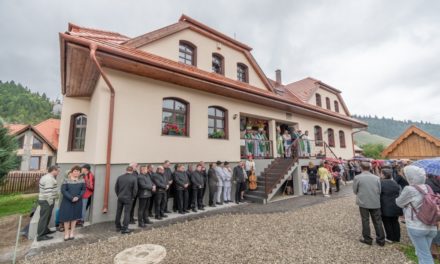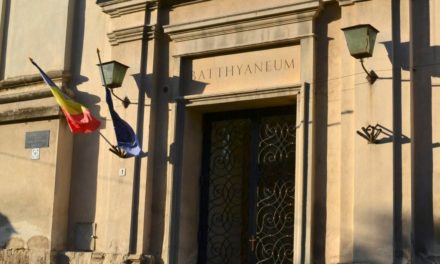The invited guests of the Mathias Corvinus Collegium Sociology Workshop's event in Budapest on Tuesday discussed the opportunities for young Roma to break out, including the situation of the Hungarian Roma in the highlands and the Roma society in Hungary, as well as the differences between the social policies of the Hungarian and Slovak states. During the conversation, it was stated that foreign regions also inhabited by Hungarian-speaking Roma would also need policies similar to the complex catch-up programs already proven in Hungary, and the importance of the economic approach was also discussed.
Hajnalka Lakatos , a teacher at the Health Secondary School in Rozsnyó, a staff member of the Romology Research and Cultural Center in Gömör, presented the special situation of the Hungarian-speaking Roma living abroad. The teacher, originally from Kürt, but currently living in the Rozsnyó district, said: although the situation of the Roma living in the western and eastern parts of the Highlands is very different, the double minority existence is decisive for all of them, i.e. the fact that "they wear the golden band of their Gypsy and Hungarian status on their foreheads at the same time".
As a result, in addition to the difficulties stemming from the incomplete knowledge of the state language, the 90-100 thousand Hungarian-affiliated Romanians in the highlands often have to deal not only with the rejection of the majority society, but also with the rejection of the Slovak-speaking Gypsies, and the lack of organizations and institutions that unite the Hungarian-speaking Roma.
In addition to the general economic and infrastructural backwardness characteristic of South-Eastern Slovakia, the work of the Roma who want to break out is made more difficult by the incomplete coverage of the Hungarian language vocational education and secondary school system and the fragmentation of further education routes. In addition, the most successful school and labor market integration of the Hungarian-speaking gypsies in the highlands would be in the clear interest of Hungary as well as the Slovak state , since in many Hungarian settlements in the highlands the Roma currently make up the majority of the population, thus the future of the Hungarian-language institutional network, the future presence of the Hungarian language and culture depends on them.
Melinda Vörösné Bangó from Tarnabod in Heves County, which is inhabited almost exclusively by Roma , and a graduate of the MCC Roma Talent Program, emphasized the importance of personal attention and constant, stable presence, recalling her own childhood experiences. According to his words, the basic condition for the outbreak is that the young people have a permanent support in their own settlement, to whom they can turn with their problems, personal life and academic problems, and that a heated room and food be provided for learning in calm conditions. For him, all of this was ensured by the presence program run by the Hungarian Maltese Charity Service, of which he became the leader as an adult.
At the same time, he emphasized that complex social programs alone do not solve the situation, since help can only be given to those who accept the help offered , and this is also true for addictions that are concentrated in disadvantaged settlements. The specialist currently working as a housing agency coordinator at the Charity Service mentioned an example from his own work experience: so far, he has helped Roma and underprivileged families receive subsidies worth nearly HUF 800 million to improve their housing conditions.
István Forgács , who also participated in the development of the Hungarian government's Roma strategies, emphasized that the integration of Roma is not primarily a social but an economic issue, emphasizing that the favorable economic situation in recent years has enabled disadvantaged people with low education to find official, registered jobs. made its access possible even in disadvantaged regions.
The people who found work in this way - including a significant number of Roma - were able to take advantage of the family policy subsidies provided by the Hungarian state, such as the home building discount (CSOK) for families who have access to their own property, family tax benefits and tax refunds, while, for example, the tax exemption for those under 25 resulted in significant additional income for young people leaving vocational training. All of this, together with public work programs, which are of diminishing importance due to the favorable labor market situation, significantly improved the economic and moral condition of the Hungarian Roma community, thus contributing to the life prospects of young people.
Source and image: Felvidék.ma
Author: Ferenc Sullivan












